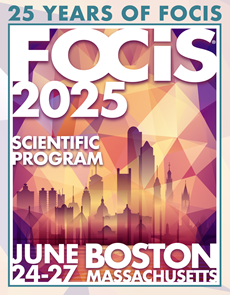Autoimmune Diseases
Session: Microbiome and Immunity
Sex Differences in the Human Gut Microbiota Contribute to CNS Autoimmunity
Wednesday, June 25, 2025
2:05pm - 2:20pm East Coast USA Time
Location: Salons F-G
Margaret Alexander – Microbiology and Immunology – University of Wisconsin, Madison; Cecilia Noecker – Biological Sciences – Minnesota State University; Kai Trepka – Microbiology and Immunology – University of California San Francisco; Vaibhav Upadhyay – Microbiology and Immunology – University of California San Franciscp; Edwin Ortega – Microbiology and Immunology – University of Califronia San Francisco; Lorenzo Ramirez – Microbiology and Immunology – University of California San Francisco; Christine Olson – Microbiology and Immunology – University of California San Francisco; Peter Turnbaugh – Microbiology and Immunology – University of California San Francisco
- RR
Rachel R. Rock, BS
PhD Student
University of California, San Francisco
San Francisco, California, United States
Presenting Author(s)
Abstract Text: Women are at increased risk for autoimmune disease due to a variety of genetic and environmental risk factors. The human gut microbiota also differs by biological sex; however, the degree to which sex differences in the gut microbiota impact autoimmune disease remains largely unexplored. Herein, we leverage high-quality, multi-cohort metagenomic data to reveal a strong signature of biological sex in the human gut microbiota. Female-enriched bacterial species are enriched in multiple autoimmune diseases, including multiple sclerosis (MS). E. lenta exhibited the greatest female-enrichment, was enriched in MS patients, and exacerbated disease severity in the experimental autoimmune encephalomyelitis (EAE) mouse model of MS-like neuroinflammation. E. lenta colonization significantly increased T-helper 1 (Th1) cells in the brain and T-helper 17 (Th17) cells in the gastrointestinal tract and brain in EAE, elevating interferon-γ (IFNγ) and interleukin-17a (IL-17a), the major cytokines that drive EAE. Heat-killed E. lenta cells induced IFNγ in primary CD4+ T cells from healthy mice and E. lenta monocolonization induced expansion of CD4+IFNγ+ T cells in the gut of healthy animals, suggesting that E. lenta induces classic Th1 inflammatory cytokine IFNγ independent of diseases state. These data add to the growing literature implicating E. lenta in the risk of autoimmunity and other diseases and further our understanding of the unique influence E. lenta exerts on host immune response. Moreover, these data underscore the importance of biological sex in shaping host-microbiome interactions as well as our need to better understand the microbial etiology of sex bias in autoimmunity.

